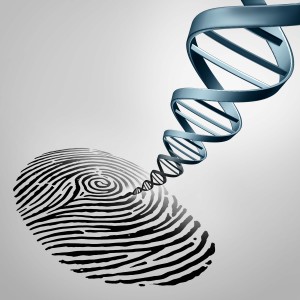Genetic Counseling 101: Decode your Gs and Cs!!
Nov 22, 2016
41407 Views
A significant number of physical and health characteristics are predetermined on account of being inherited from our parents. As a kid, when I didn’t do well at school sometimes, my parents would ask me why I didn’t score as much as I should have and, to avoid an uncomfortable conversation, I would simply say – “did you guys know intelligence is inherited from your parents?”, and then quietly walk out of the room as they pondered over my statement. Nothing against my parents; they are very smart. In all honesty that was classic teenage behavior and my teenaged way of (not) dealing with things!

While in school, I never imagined that one day I would study to become a genetic counselor. Now that I do what I do, I cannot assert enough, the important role played by a genetic counselor. Genetic Counselors are specialized experts in medical genetics and psychological counseling whose role is to liaison with doctors and patients in order to:
- Analyze detailed medical and family history
- Provide accurate genetic assessment
- Identify and facilitate appropriate genetic testing
- Interpret and communicate complex genetic test results
- Discuss implications of these genetic test results on prevention, treatment, or management in a medically meaningful and easy to understand manner
- Provide the necessary support to patients, families as well as physicians dealing with a genetic diagnosis
Genetic counselors work as a part of a health care team, are patient advocates, and help families understand the significance of genetic disorders in the context of familial, personal and cultural relevance.
When to see a Genetic Counselor?

People most visit a genetic counselor when they need to understand the implication of a genetic condition or a genetic risk. It is extremely important to see a genetic counselor in the following situations:
- A diagnosis of a genetic condition in oneself or a family member (such as thalassemia, Down Syndrome, muscular dystrophy, Type 1 Diabetes, cancers, etc.)
- Women who will be 35 years or older at delivery
- “Abnormal” blood tests or ultrasounds during pregnancy
- A previous child (or pregnancy) suspected to have a genetic condition
- Family history or personal diagnosis of a birth defect (such as cleft lip/palate, spina bifida, extra or missing fingers or toes, heart defects, etc.)
- Family history of mental retardation, muscular dystrophy, blindness, hearing loss, blood disorder, early deaths, etc.
- Infertility, multiple miscarriages, stillbirth
- Prior to any genetic testing (such as CVS/amniocentesis, karyotyping, etc.)
- Many proactive couples also choose to see a genetic counselor before achieving a pregnancy
Reasons why Genetic Counselling is important

-
To test or not to test–
Genetic Counselors have the special expertise to help patients make educated and informed decisions about genetic testing. Genetic Counselors discuss the risks, benefits and limitations of testing as well, the implications of possible results for the family/individual, as well as address any anxieties or concerns they may have in safe and non-judgmental environment. A typical genetic counseling appointment lasts about 45 minutes.
-
Choosing the right test –
When suggesting a test to individuals or families, genetic counselors take into account three generations of family history, detailed individual medical history, and review previously undertaken tests. Genetic counseling epitomizes personalized medicine – oftentimes a test that’s appropriate for one pertain may not be appropriate for another patient, who will likely benefit from a test. Genetic counseling takes the guesswork out of picking the right and, often life saving, genetic test.
-
Professional and emotional support –
Unlike a regular doctor’s appointment, a significant amount of time is devoted to pre- and post-test genetic counseling appointments in order to help patients and families understand and cope with genetic test results and their implications. Knowing that one is a carrier for a disease or receiving a genetic diagnosis are significant live events; most patients are extremely appreciative of these detailed, compassionate and patient appointments that are the standard of care across the globe. Genetic counselors are invaluable resources in helping patients at such times.
-
Providing information on treatment/management options –
While few genetic conditions have effective treatment options, most people are unaware that there are guidelines on management. Genetic counseling provides a road map, guidance, and support to help patients and families strategize an effective management plan that can be life changing for many.


